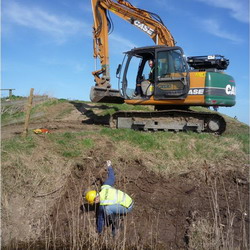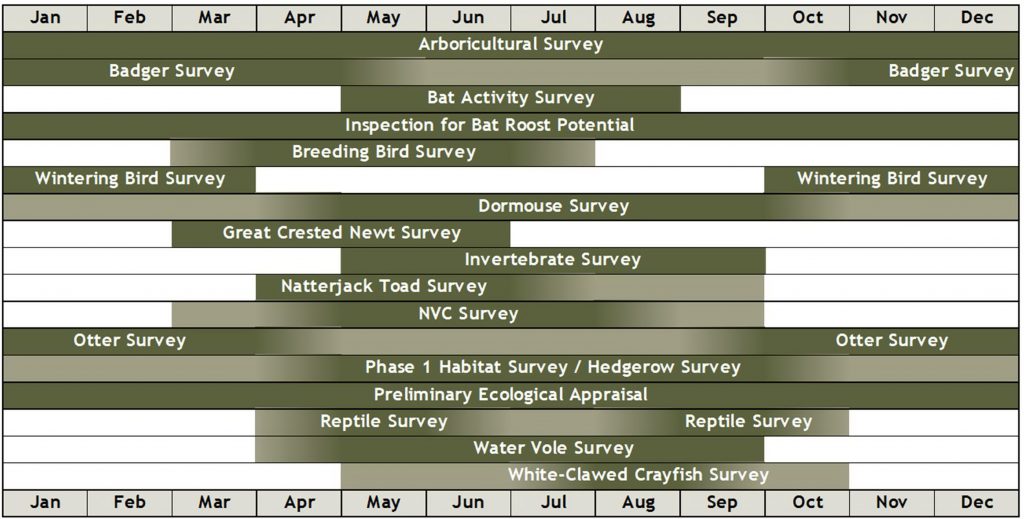
The WFE team checking for water voles
Planning conditions are frequently issued requiring on-site ecological supervision during the construction phase of a development. Often this is delivered through a Construction Environmental Management Plan (CEMP) or licensing conditions. This is to ensure wildlife impacts are avoided or minimised and that biodiversity enhancements are secured. This role is usually carried out by an Ecological Clerk of Works (ECoW).
All WFE’s ecologists undertaking ECoW are CSCS certified.
WFE’s ecologists work with developers and alongside contractors to provide accurate advice and pragmatic solutions that ensure the planning conditions are discharged efficiently. We proactively advise on relevant wildlife legislation in relation to construction activities, thus minimising risks of delays to the project.
An ECoW may be required to carry out various tasks including:
- Pre-construction checks to confirm baseline conditions for sensitive habitats and protected species, including badger and water vole surveys.
- Nesting bird checks.
- Writing and implementing CEMPs.
- Providing a Tool Box Talk for site staff.
- Providing an ecological watching brief for prescribed works – such as supervising topsoil removal, vegetation clearance and building demolition.
- Producing best practice advice to minimise impacts of construction activities.
- Applying for relevant mitigation licences.
- Implementing mitigation such as reptile and amphibian handling and relocation, habitat creation, and destructive searches.
Project Examples
Bats in a barn conversion
As part of the works under a bat EPS licence, WFE provided an ECoW service for the conversion of a barn complex in Hindolveston, Norfolk in 2018. Survey work over…
Ecological Survey Calendar
This calendar clarifies the times of the year during which different ecological and protected species surveys should be conducted. Optimal survey seasons are shown in green.

